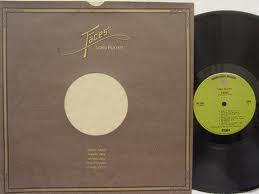2012. So how was it
for you? From my viewpoint sitting here
in the UK ,
it was probably an above average year as long as you looked in the right
places. Let’s face it, if you
concentrate on the woeful economy and miserable weather you’d be marking it
down quicker than a GCSE examiner. So
let’s forget all that real world stuff and focus on firstly…sport!
This year served up some bumper sporting moments if you were
a Brit and this is something to be savoured as we, as a race, are not used to winning
anything – at least since the rest of the world got to know the rules and beat
us at everything. There was Bradley
‘Wiggo’ Wiggins winning the Tour de France, Andy Murray winning his first Grand
Slam Tournament, England ’s
cricket Team gaining World Number 1 status, the Ryder Cup comeback - and that
was just for starters.
The jewel in the sporting crown was an amazing Summer
Olympics and Paralympics which made household names of the likes of Ennis,
Farrah, Wiggins (again), Hoy, Rutherford, Adams, Trott, Dujardin, Adams, Weir, Simmons,
Brownlee, Ainslie, Pendleton, and many, many more.
Of course, nothing lasts for ever and it wasn’t long before
the Cricket team lost their Number 1 status (but redeemed themselves in India) and inevitably here at the tail end
of the year, the England
football team continues to struggle in a poor qualifying group for the next
World Cup. Oh well, it was nice whilst
it lasted.
But what about music?
Sad to say, I’ve found little to titivate my palette and consequently
have bought very few CDs this year, preferring to pick up much improved
remixed/remastered releases of favourite albums from my past. If pushed to pick out a new album of the
year, it would probably be Marina and the Diamonds’ ‘Electra Heart’ which has
been on my ipod since release. A close
second would be either The Bangles’ ‘Sweetheart of the Sun’ or Doris Brendel’s
‘Not Utopia’, but other than these three not much else has really moved me
which is a bit of a sad state of affairs and no mistake. I might have to re-name this blog, ‘Sport
Obsessive’.
So how does it all stack up when added together? Well, on the music front, 2012 has
under-performed a bit if you look at new music alone but if you argue that the
art of re-mixing and remastering old albums has come of age then it has been a
pretty good year with some stunningly revitalised stuff to the fore (yes, I’m
looking at you, ‘Aqualung’).
But if you add in a massively dramatic sporting summer, 2012
acquits itself with flying colours and proves yet again that there is nothing
quite like the real drama of live sport – there’s never a script and anything
can happen. Hoorah!
See you all in the New Year!






















